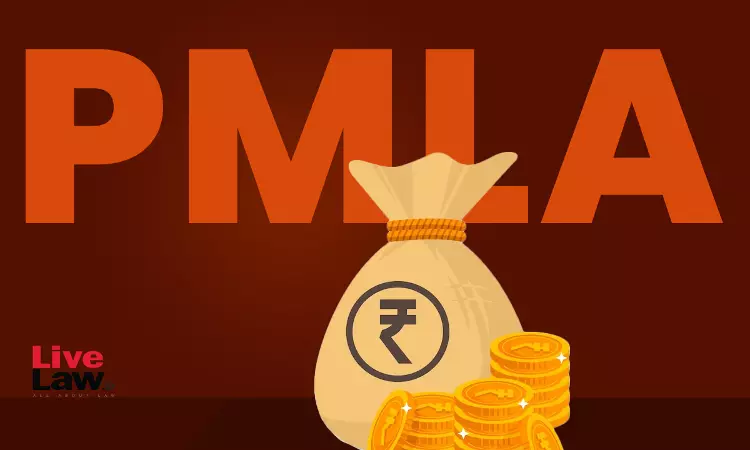NCLT Not Empowered To Interfere With Attachment Of Properties Under PMLA Proceedings: NCLT New Delhi
Mohd.Rehan Ali
22 Sept 2025 10:00 AM IST
The NCLT, New Delhi Bench, comprising Shri Manni Sankariah Shanmuga Sundaram (Member-Judicial) and Shri Atul Chaturvedi (Member-Technical), has held that the NCLT lacks the authority to adjudicate upon an order issued by the adjudicating authority under PMLA or to direct the Enforcement Directorate to release the attachment. The present application was filed by the...
The NCLT, New Delhi Bench, comprising Shri Manni Sankariah Shanmuga Sundaram (Member-Judicial) and Shri Atul Chaturvedi (Member-Technical), has held that the NCLT lacks the authority to adjudicate upon an order issued by the adjudicating authority under PMLA or to direct the Enforcement Directorate to release the attachment.
The present application was filed by the resolution professional under section 114(1) read with section 60(5) to stay the proceedings initiated by the Directorate of Enforcement (ED) under the PMLA, 2002, and to set aside the provisional attachment order.
The resolution professional submitted that the said attachment will hinder the CIRP and violate the moratorium under section 14. It highlighted that the PMLA proceedings are “civil proceedings”; therefore, the bar under section 14 applies to it also.
Highlighting the overriding effect of the code as mentioned in section 238, the RP relied on P. Mohanraj v. Shah Brothers Ispat Pvt. Ltd. (2021) and Alchemist ARC v. Hotel Gaudavan Pvt. Ltd. (2017) and submitted that the continuation of attachment of proceedings is hit by section 14.
Per contra, the ED contended that the attachment has been made under section 5 of PMLA in respect of “proceeds of crime” arising out of an FIR by the CBI. It also highlighted that the provisional attachment has been confirmed by the adjudicating authority under section 8 of PMLA.
It also submitted that NCLT has no jurisdiction to interfere with the orders passed under the PMLA, which is a special and self-contained code. Placing its reliance on Embassy Property Developments Pvt. Ltd. v. State of Karnataka (2019), Varrsana Ispat Ltd. v. Deputy Director, ED (2019), and Kiran Shah v. ED (2021), it was submitted that the NCLT cannot sit in appeal of the decisions taken by the adjudicating authority under any other statute.
Highlighting the nature of section 32A of the IBC, the respondent submitted that the provision protects the assets of the corporate debtor only after the approval of the resolution plan, which is not the case here.
Observations of the NCLT
The adjudicating considered the issue of whether it can direct the detachment or stay the attachment confirmed under PMLA.
The NCLT discussed the rulings of Embassy Property Developments Pvt. Ltd. (2019) 11 SCC 1 and Kiran Shah vs. Enforcement Directorate 2022 SCC OnLine NCLAT 2, wherein it was held that the NCLT cannot adjudicate upon the matters falling outside the scope of IBC and within the exclusive domain of authorities constituted under any other legislation. Therefore, the appellant can only approach the adjudicating authority under the PMLA, before whom the matter is pending.
Further, the bench relied on the ruling of Varrsana Ispat Limited versus Deputy Director of Enforcement (Company Appeal (AT) (Insolvency) No. 493 of 2018) to discuss that the moratorium under section 14 is not applicable to the PMLA proceedings.
The bench also discussed that the immunity under section 32A is not applicable to the offenses committed prior to the initiation of the CIRP. Here, in the present case, the bar under section 32A does not operate, as no resolution plan was approved.
Furthermore, the bench discussed the principle of harmonious construction, which allows both laws to operate in their respective fields, and observed that the remedies are available to the applicant under sections 8, 26, and 42 of the PMLA.
Lastly, the bench observed that the object of the PMLA is to prevent money laundering and to confiscate “proceeds of crime,” and the de-attachment, if allowed, would trench upon the jurisdiction of the PMLA. Therefore, the NCLT lacks jurisdiction to interfere with this.
Case Name: Vikram Kumar (RP) v. Directorate of Enforcement
Case No.: I.A. NO. 4373 OF 202 & I.A. 5680 OF 2023 IN C.P. IB NO 843 (ND) OF 2018
For Applicant: Mr. Bhargav Thali, Advocate
For RP: Mr. Abhishek Anand, Mr. Karan Kohli, Ms. Vaishnavi, Advocates.
Corum: Shri Manni Sankariah Shanmuga Sundaram (Member-Judicial) and Shri Atul Chaturvedi (Member-Technical)
Order Date: 02.09.2025
Click Here To Read/Download The Order



